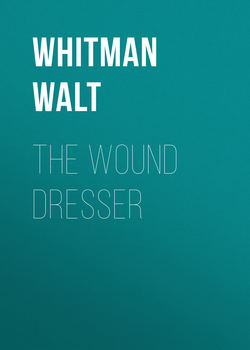Читать книгу The Wound Dresser - Уолт Уитмен - Страница 2
PREFACE
ОглавлениеAS introduction to these letters from Walt Whitman to his mother, I have availed myself of three of Whitman’s communications to the press covering the time during which the material which composes this volume was being written. These communications (parts of which, but in no case the whole, were used by Whitman in his “Memoranda of the Secession War”) seem to me to form, in spite of certain duplications, which to my mind have the force, not the weakness, of repetition, quite an ideal background to the letters to Mrs. Whitman, since they give a full and free description of the circumstances and surroundings in the midst of which those were composed. Readers who desire a still more extended account of the man himself, his work and environment at that time, may consult with profit the Editor’s “Walt Whitman” (pp. 34-44), O’Connor’s “Good Gray Poet” (included in that volume, pp. 99-130), “Specimen Days” (pp. 26-63, included in Walt Whitman’s “Complete Prose Works”), and above all the section of “Leaves of Grass” called “Drum-Taps.” I do not believe that it is in the power of any man now living to make an important addition to the vivid picture of those days and nights in the hospitals drawn by Whitman himself and to be found in his published prose and verse, and, above all, in the living words of the present letters to his mother. These last were written on the spot, as the scenes and incidents, in all their living and sombre colors, passed before his eyes, while his mind and heart were full of the sights and sounds, the episodes and agonies, of those terrible hours. How could any one writing in cold blood, to-day, hope to add words of any value to those he wrote then?
Perhaps, in conclusion, it may be as well to repeat what was said in the introduction to a former volume,—that these letters make no pretensions as literature. They are, as indeed is all that Whitman has written (as he himself has over and over again said), something quite different from that—something much less to the average cultured and learned man, something much more to the man or woman who comes within range of their attraction. But doubtless the critics will still insist that, if they are not literature, they ought to be, or otherwise should not be printed, failing (as is their wont) to comprehend that there are other qualities and characteristics than the literary, some of them as important and as valuable, which may be more or less adequately conveyed by print.
R. M. B.
